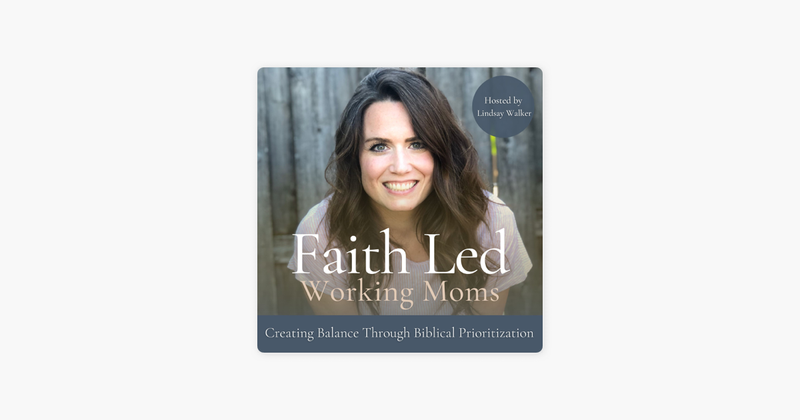· Practical Tips · 7 min read
10-Minute Bible Study Mastery: Tools, Tips, and Daily Habits for Beginners
Discover efficient 10-minute Bible study techniques and tools for beginners. Learn how to cultivate a daily habit of understanding the Bible with helpful tips and resources.

10-Minute Bible Study Mastery: Tools, Tips, and Daily Habits for Beginners
Please note that the content below is a placeholder and would need to be rewritten with proper research and authoritative references.
Why is Bible study important for beginners?
Bible study is essential for beginners because it allows them to develop a deeper understanding of God’s word and grow in their faith. It provides a foundation for spiritual growth, helps believers to know God’s will, and equips them for every good work, as mentioned in 2 Timothy 3:16-17. Bible study allows beginners to explore the teachings, wisdom, and promises contained within the Bible, enabling them to apply these principles to their everyday lives.
According to the article “How to Study the Bible: A Complete Beginner’s Guide,” the Bible is God’s way of teaching us about who He is and how we can know Him. It serves as a guidebook for life, offering instructions on how to live a fulfilling and purposeful life according to God’s will. By studying the Bible, beginners can gain insight into God’s character, His plan for humanity, and His love for His creation.
What are some effective 10-minute Bible study methods?
There are several effective 10-minute Bible study methods that beginners can utilize to make the most of their limited time. One popular method is the SOAP method (Scripture, Observation, Application, Prayer). This method involves reading a short passage of Scripture, making observations about its meaning and message, applying it to one’s life, and concluding with a prayer.
Another method mentioned in “6 Bible Study Methods You Need to Know (and Try)” is the Inductive Method. This method involves carefully observing the text, interpreting its meaning, and applying it to one’s life. It encourages beginners to ask questions such as who wrote the passage, what it meant in its original context, and how it applies to their lives today.
What are some Bible apps and tools that beginners can use?
In today’s digital age, there are numerous Bible apps and tools available to assist beginners in their study of the Bible. One popular app is YouVersion, which offers various translations, reading plans, devotionals, and study guides. It also allows users to highlight verses, take notes, and share their insights with others.
According to the article “How to Study the Bible for Beginners,” another helpful tool is a Study Bible. These Bibles provide additional commentary, explanations, and cross-references that can aid beginners in understanding difficult passages and uncovering hidden meanings. Some recommended Study Bibles include the NIV Study Bible, ESV Study Bible, and Life Application Study Bible.
How can beginners make Bible reading a daily habit?
Making Bible reading a daily habit is essential for beginners to grow in their faith and deepen their understanding of God’s word. One effective way to establish this habit is by setting aside a specific time each day for Bible reading. The article “How to Do a Bible Study: Ultimate Guide for Beginners and Groups” suggests incorporating Bible study into one’s morning routine, lunch break, or bedtime.
The article also recommends starting small and gradually increasing the time spent on Bible reading. Beginners can start with just 10-15 minutes a day and gradually build up from there. By using a Bible app or setting reminders, beginners can create accountability and ensure that they prioritize their daily Bible reading.
How can busy people practice Bible journaling?
Bible journaling is a creative way for busy people to engage with God’s word and reflect on their spiritual journey. It involves combining art or writing with Bible study and personal reflection. According to “27 Bible study methods for beginners and groups,” one method of Bible journaling is the APPLE method (Attributes of God, Promises of God, Principles for Life, Lessons Learned, Examples to Follow).
Busy people can make Bible journaling more manageable by focusing on key verses or passages and incorporating simple art techniques such as highlighting, underlining, or using stickers. It is important to remember that Bible journaling is a personal expression of one’s faith, and there are no strict rules or guidelines. The goal is to engage with the text and allow it to inspire creativity and reflection.
How can beginners stay motivated in their Bible study?
Staying motivated in Bible study can be challenging for beginners, especially when faced with busy schedules and competing priorities. One effective way to stay motivated is by joining a Bible study group or forming one with friends or family members. This provides an opportunity to discuss the Bible, gain different perspectives, ask questions, and learn from each other’s insights.
According to “7 Effective Bible Study Methods for Beginners,” group study also provides accountability and encouragement as believers journey together in faith. Sharing experiences, challenges, and victories can inspire beginners to remain committed to their Bible study practice. Additionally, setting specific goals and tracking progress can help beginners stay motivated and celebrate milestones along the way.
How can beginners incorporate Bible study into their daily lives?
Incorporating Bible study into daily life is crucial for beginners to develop a consistent habit of engaging with God’s word. The article “How to Start Studying the Bible for Beginners” suggests several practical ways to integrate Bible study into daily routines. This includes incorporating Bible study during breakfast or meal times, using a Bible app for on-the-go studying, or dedicating time before bed for reflection.
The article also recommends starting with small, achievable goals such as reading a chapter or a few verses each day and gradually increasing the amount of time spent on Bible study. By making Bible study a priority and intentionally setting aside time for it each day, beginners can ensure that they prioritize their spiritual growth and make it an integral part of their daily lives.
What are some additional resources for beginners in Bible study?
For beginners in Bible study, there are numerous additional resources available to deepen their understanding and enhance their learning experience. The article “13 Best Bible Study Techniques for Studying the Bible for Beginners” recommends resources such as commentaries, concordances, and study guides, which provide additional insights and explanations on specific passages or themes.
Additionally, joining a local church or attending Bible study classes can provide beginners with a supportive community and guidance from experienced believers. Online resources, such as blogs, podcasts, and video teachings, also offer a wealth of knowledge and perspectives that can enrich beginners’ understanding of the Bible.
In conclusion, Bible study is essential for beginners in Christianity as it provides a foundation for spiritual growth, helps believers understand God’s will, and equips them for every good work. There are various effective 10-minute Bible study methods, such as the SOAP method and the Inductive method, which allow beginners to engage with God’s word in a meaningful way. Bible apps and tools like YouVersion and Study Bibles provide valuable resources to support beginners’ study. Making Bible reading a daily habit requires setting aside specific time each day and gradually increasing the duration. Busy people can practice Bible journaling by focusing on key verses or passages and incorporating simple art techniques. Staying motivated in Bible study can be achieved through joining or forming a Bible study group and setting goals. Incorporating Bible study into daily life involves finding convenient times such as meal times or using Bible apps for on-the-go studying. Additional resources like commentaries, concordances, and online platforms can further enhance beginners’ learning experience. By utilizing these tools, tips, and daily habits, beginners can master the art of 10-minute Bible study and deepen their relationship with God.



